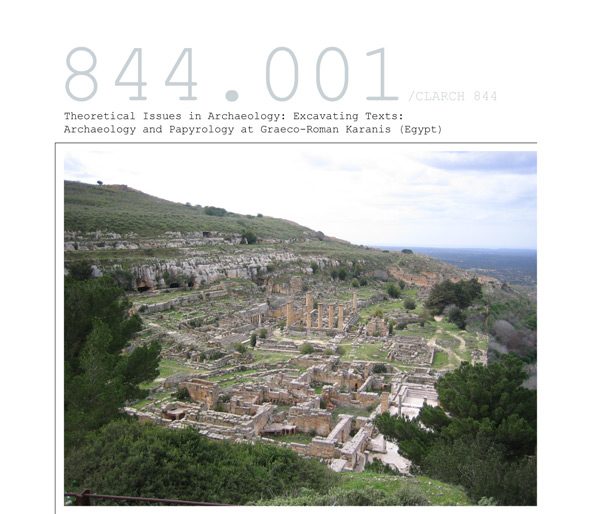
Between 1926 and 1935 the University of Michigan sponsored a series of excavation seasons at the Graeco-Roman town of Karanis in the Fayum region of Egypt. The exceptionally dry conditions of the region facilitated the preservation and recovery of large numbers of documentary papyri. At the same time, the project also investigated some of the buildings (many of them residential) in which the papyri lay, recording information about both the architecture and a whole range of associated fixtures and artefacts, many made of organic materials which rarely survive in other archaeological contexts. In this course we use Karanis as a case-study to explore some of the ways in which different types of archaeological and textual evidence can be approached and analyzed. In particular we investigate how to formulate an interdisciplinary approach which makes use of the full range of textual and archaeological sources, and how such an approach can be applied to address a range of social questions such as ethnic origins, the nature of the domestic economy and the character of cult practices. Estimated cost of materials: less than $50.
Meets with GREEK 820/ACABS 860
Meets with GREEK 820/ACABS 860
Monday
12:00pm - 3:00pm
270 Tappan
3 Credit Seminar *Crosslisted w/ CLARCH 844